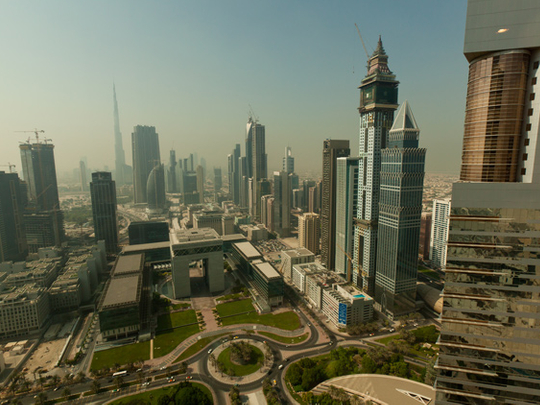
Dubai: The Dubai economy is forecast to grow at 4.6 per cent next year and 6 per cent in 2012, according to research by the Dubai Chamber of Commerce and Industry (DCCI).
This growth will come at a price, however, as the UAE inflation rate is expected to reach 2.5 per cent in 2011 and 3.5 per cent in 2015, according to Dr. Eisa Abdul Galil, Senior Manager of Economic Research at DCCI.
Estimates of Dubai's real GDP growth rate in 2010 range from 0.8 to 2.3 per cent.
Trade contributed 238 per cent of Dubai's GDP between 2005 and 2008, which is comparable to similar cities such as Luxembourg (293 per cent), Hong Kong (383 per cent) and Singapore (456 per cent), he said. Expectations for trade in 2010 focus on an increase in imports and exports, according to Marietta Morada, Data Management Manager at DCCI. Estimates show an increase of 26 per cent in exports to Dh355 billion in 2010, she said. Imports are estimated to increase by 15 per cent to Dh542 billion, she added. These estimates are based on the assumption that the last four months of the year, which are the busiest, account for about 35 per cent of total annual trade, she explained.
In October, the latest figures released by the DCCI, Dubai's external trade approached Dh20 billion.
"The openness of the UAE and Dubai place them in a better position to benefit from any early global recovery," said Abdul Galil.Dubai has a competitive advantage in exports to certain countries and in products, which is called the revealed competitive advantage (RCA).
An RCA of over 100 means that it has a competitive advantage.
Competitive advantage
Dubai's competitive advantage is in tobacco and tobacco substitutes exports to Turkey (RCA of 7,807), photographic and cinema equipment to Yemen and Japan (RCA of 6,683 and 2,916, respectively), precious stones and metals to Indonesia (RCA of 4,554), and beverages and vinegar to Pakistan (5,532).
These figures take into account exports from customs and free zones and re-exports, according to Fahd Shah, a DCCI researcher.
"Dubai has been developing niche markets and long-term trade relationships worldwide, which is helping to sustain Dubai trade, even in difficult times," he said.












